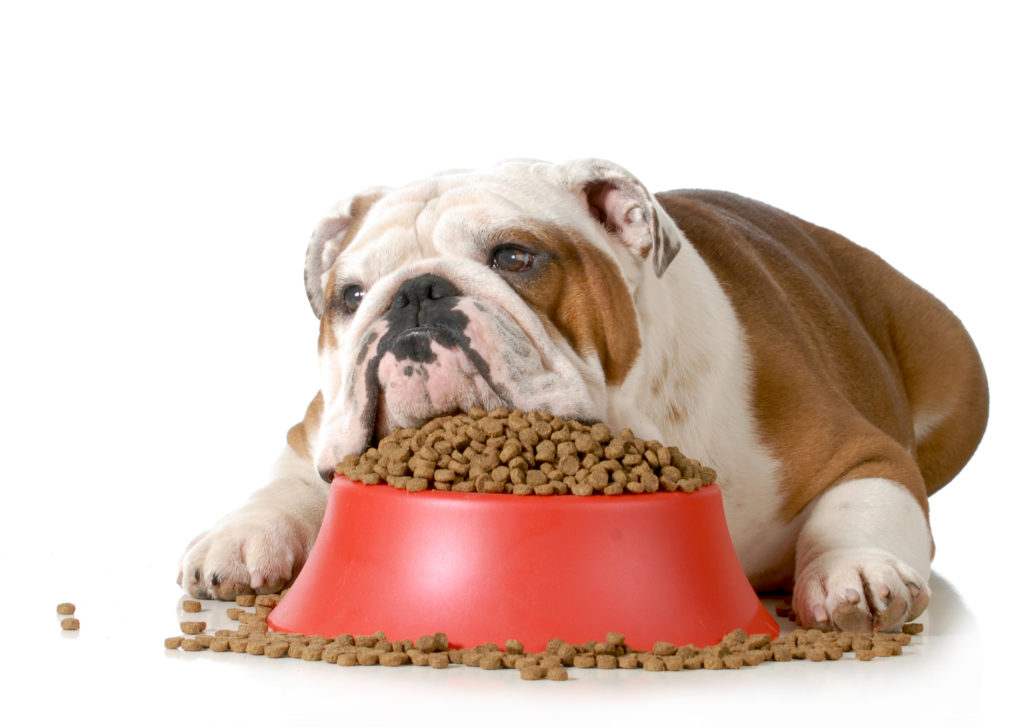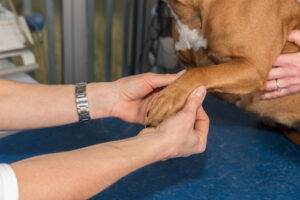There is some evidence suggesting certain boutique, novel protein, grain-free diets for dogs are contributing to a heart condition called dilated cardiomyopathy (DCM). This condition is treatable if discovered early on by supplementing the patient with the amino acid taurine and feeding a low sodium, balanced diet. Patients diagnosed later in the disease may have irreversible heart damage.
Here is what we know about this disease:
Genetic factors play a role:
Certain breeds are at risk: golden retrievers, cocker spaniels, Portuguese Water Dogs, Newfoundland’s, English setters, Irish wolfhounds.
Dietary factors play a role:
• Taurine deficiency
• Other unknown dietary factors
How do these foods cause this problem?
The grain free, novel protein diets predispose our canine patients in a number of possible ways. They may cause nutrition imbalances (like low taurine), or contain toxic dietary substances. It is unclear the direct cause of the taurine deficiency. It may be from a reduced bioavailability of taurine, increased excretion of taurine in the urine, altered metabolism of taurine related to fiber and intestinal microbes. The processing of the food or the nutritional bioavailability also affects taurine.
There are some patients that have DCM from other, unrelated dietary factors.
What does this all mean?
What this means, is that you cannot read a pet food label and know if the food is complete and nutritious. For example, look at a food with the first ingredient chicken, and the next two ingredients pea protein and lentils. It looks like this diet is most chicken, but in reality not. Whole chicken is mostly water, so in fact there is very little chicken protein in this food, it is mostly plant legume protein.
What is also apparent is there is no direct cause and effect relationship proven between these grain free, or home prepared diets, as other factors may play a role.
What should I do?
If you have a large breed dog breed predisposed to DCM, schedule a visit with your veterinarian for an exam, to discuss the diet history, and to possibly measure taurine levels. Golden retrievers are recommended to have taurine supplemented if levels are in the low normal reference range.
For all other dogs, discuss with your veterinarian your pets diet history. This includes foods, snacks, treats, table food, chew toys. Assess your pets risk for DCM. If indicated, consider changing to a diet made by a well-established manufacturer that contains sufficient levels of high quality, animal-source protein, does not include plant-source proteins as its primary protein source, and does not contain high levels of dietary fiber.
For further information see the following links:
• https://thesciencedog.wordpress.com/2018/08/30/the-heart-of-the-matter/
• https://avmajournals.avma.org/doi/abs/10.2460/javma.253.11.1390





